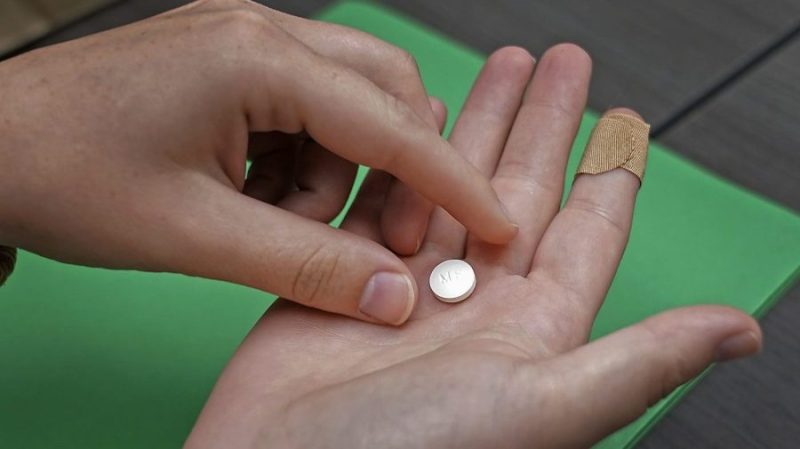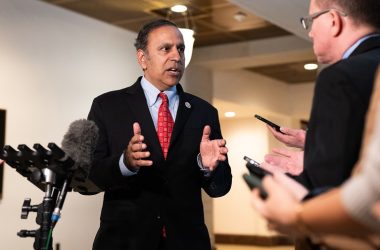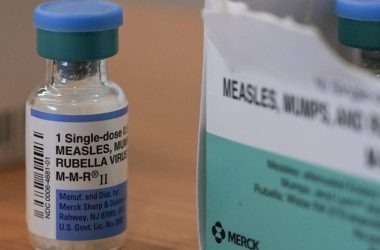American women are seeking to take their reproductive future into their own hands ahead of a second Trump presidency by stocking up on emergency contraception and abortion pills, scheduling IUD insertions and, in some cases, making plans to get sterilized.
Medication abortion providers reported a surge in requests for and purchases of the drugs in the hours after President-elect Trump was reelected last Tuesday amid concerns that the incoming administration and Congress and the judges Trump appoints could restrict access.
Aid Access, a nonprofit organization that connects people to mail-order abortion pills, told The Hill it experienced more than a 16-fold increase in abortion medication requests the day after the election.
Typically, the site receives about 600 requests a day for the abortion pills mifepristone and misoprostol, the most common medication abortion regimen, according to executive director Rebecca Gomperts. It received 10,000 requests the day after the election.
Emergency contraception company Cadence OTC also experienced a boom in purchases — five times the amount the company normally sees in a week in just one day after the election, according to a spokesperson.
Wisp, a sexual and reproductive telehealth company, has similarly seen a tremendous increase in requests for abortion pills as well as emergency contraception like Plan B in the aftermath of Election Day.
Sales for emergency contraception jumped by 1,000 percent among returning Wisp patients on Nov. 6, according to the company’s CEO Monica Cepak. Among new Wisp patients, sales increased by 1,650 percent the day after the election.
Multipacks of Plan B, also known as the morning-after pill, made up 92 percent of all emergency contraception purchases on Wisp during that time.
Trump struck an increasingly moderate tone on abortion over the course of the 2024 campaign. He has said he would veto any efforts to pass a national abortion ban and repeatedly stated that decisions on the issue should be left up to states, while saying bans should include exceptions for rape, incest and the life of the mother.
But Trump has also repeatedly touted his role in the 2022 overturning of Roe v. Wade. And he recently appeared to waffle slightly on his previous stance on a potential national ban during a Fox News interview, in which he said that a ban was “off the table” but then left conversation on the topic open by saying, “We’ll see what happens.”
Abortion rights advocates anticipate efforts to restrict access from the second Trump administration, potentially including efforts to allow states to impose bans that have been fought by the Biden administration or to bar mifepristone from being mailed.
The prospect of such efforts, coupled with the GOP’s impending control of both chambers of Congress, has left many Americans fearful of what the coming years may hold for reproductive health care.
Many of the people who purchased emergency contraception through Wisp were women living in states that have implemented abortion bans in the aftermath of Roe v. Wade being overturned.
The day following the election, emergency contraception pill purchases increased by 930 percent in Texas, 730 percent in Indiana and 133 percent in Oklahoma, according to Wisp data shared with The Hill.
The nonprofit also saw major increases in sales in states with heavy restrictions like Florida and in Pennsylvania, which currently allows abortion until the 24th week of pregnancy with some exceptions after that point, although the state flipped red in the presidential election. Sales also went up in states where abortion is readily accessible like California and New York, possibly because women are taking precautionary measures, a spokesperson said.
Cepak added that medication abortion orders increased by 600 percent on Wisp between Election Day and the day after and that birth control sales went up by 50 percent.
“We saw a very similar situation unfold following the overturning of Roe v. Wade,” Cepak wrote in an email to The Hill. “Women, once again in a moment of crisis, are taking control of their healthcare and feel empowered to invest in preventative reproductive health in an environment of uncertainty and risk.”
More Americans were also looking for information on how to get contraception or abortion pills, even if they were not actively purchasing them.
Cadence reported seeing a 70 percent increase in website traffic the day following the election.
Plan C, a nonprofit organization that provides information on how to access medication abortions, also reported seeing an increase in web traffic after the 2024 presidential election was called.
In the days leading up to the election, the site had between 4,000 to 4,500 visitors a day, according to Elise Wells, co-founder and co-director of Plan C. On Wednesday, the site’s traffic shot up to 82,200 visitors from all over the country.
“People are concerned that a Trump administration will place additional restrictions on abortion access, potentially even a full ban,” she said. “People want to be prepared by having pills on hand just in case they need them.”
Some people are taking their reproductive precautions a step further by scheduling intrauterine device, or IUD, insertions or tubal ligations, commonly referred to as “getting your tubes tied.”
Clayton Alfonso, an obstetrician and gynecologist at Duke Health, told The Hill that in the past week he has seen a “major uptick” in requests for IUD insertions before the presidential inauguration in January among colleagues, friends and patients.
Megan West, a 38-year-old mother of two in Florida, is one of the people seeking to get a new IUD in the wake of the election. She and her husband decided they didn’t want any more children after their second baby was born in 2020 — so West opted to get an IUD to prevent future pregnancies.
After Tuesday’s election results, West started to panic, worrying that she might not be able to replace her soon-to-expire IUD in the future. She messaged her OB-GYN over the weekend to see if she could have the device replaced as soon as possible.
“I know that contraception is on a long list of things that could possibly be taken away,” she said. “My fear is that I won’t be able to get my IUD replaced or, even if I still had access to it, my insurance wouldn’t cover me getting a new IUD.”
Alfonso has also had two requests for sterilizations from patients out of concern that they might not be able to undergo the procedure after Trump takes office again, he said.
Some abortion activists have feared that Trump would enforce the Comstock Act to stop the distribution of abortion medications. The law, passed by Congress in 1873, makes it illegal to mail “obscene” materials including pornography or contraception.
Deirdre Schifeling, chief political and advocacy officer at the American Civil Liberties Union (ACLU), doesn’t think Trump will have the authority to use that particular law, though she noted “that doesn’t mean that the people around him won’t try.”
She also said his administration could use other methods to further restrict reproductive rights.
The ACLU does anticipate the Trump administration will go after Medicaid coverage for birth control and Medicaid funding for Planned Parenthood as a way to restrict access, she said.
She added that there is also a chance the administration will try again to challenge the Food and Drug Administration’s (FDA) approval of mifepristone.
Abortion opponents sued the FDA over its approval of the drug in a Texas court five months after the 2022 overturning of Roe v. Wade. U.S. District Judge Matthew Kacsmaryk of the Northern District of Texas, a Trump nominee, ruled that the agency improperly approved of the drug decades ago.
Just hours later, another federal judge issued a ruling in a different case related to the FDA and mifepristone in Washington state that stopped the drug from being taken off the market. Eventually, the case was brought to the Supreme Court, which ruled earlier this year to preserve access to the drug.
These are some of the ways that a Trump administration could seek to restrict reproductive rights, but new tactics are also likely to appear in the future, abortion advocates say.
“Every day is a new day for them to figure out how to take people’s rights away,” Schifeling said.





